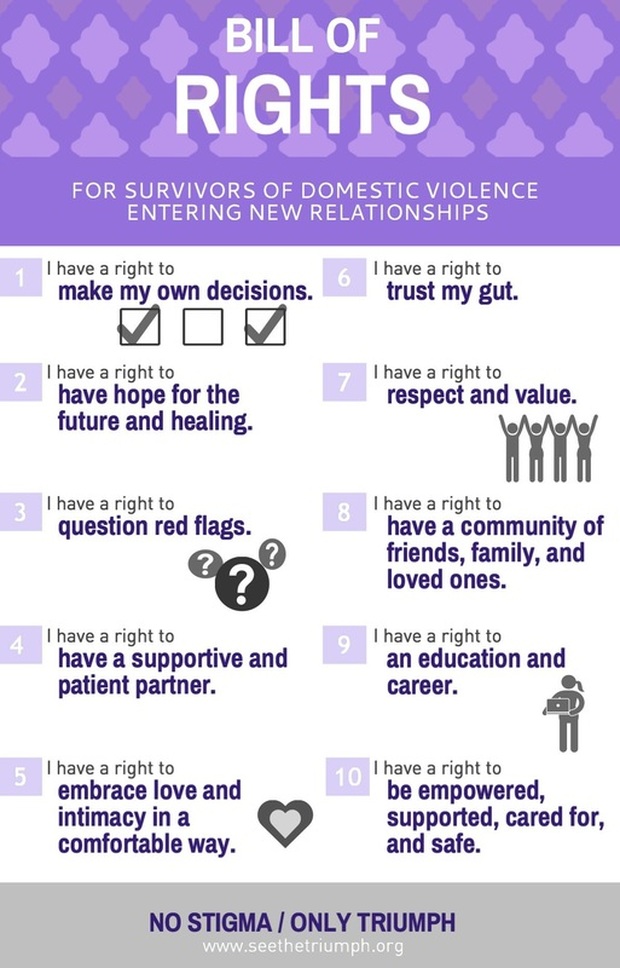|
By Jordan Austin, See the Triumph Guest Blogger
Safe and healthy relationships are a basic human right. For survivors of domestic violence, beginning or engaging in intimate relationships may pose unique challenges. The concept of thriving within the shelter of others may very well now have a new meaning, new difficulties, and new hesitations. After being victimized by a partner who was supposed to be supportive and kind, it’s understandable to have questions or fears about how to navigate future intimate relationships. To quote one participant in See The Triumph’s research, “I still have scars; they will always be a part of what made me who I am today.” If you have experienced the hurtful sting of abuse, you may still be living with the complications today. It’s important, though, to have hope toward the possibility of safe and supportive relationships, either intimately or with friends and family members. It’s also important to remember that survivors are not destined to repeat cycles of victimization. You may hold fears around fully trusting yourself or others again because of a previous relationship. Time may be necessary to learn about yourself, understand your views of others, and regain power and control over your life again. However, in addition to fostering these aspects self-awareness, there are rights you have as a survivor as you begin the process of moving toward healthier relationships. There is a chance an abuser has told you otherwise, that you do not deserve worth, importance, or efficacy. Combatting these internalized messages will help support you along your healing journey. In any future partnership, you have a right to make decisions for yourself again. Should you desire a community, a career, an education, a loving partner, you have a right to these things. Embracing intimacy and connection again may cause you to feel uncertain or uncomfortable. You have a right to welcome or decline new experiences and have a partner who is supportive and patient with you. No relationship will be perfect, but you also can question red flags and trust your gut; you are the expert on you. Desiring an intimate connection is a natural need of humans. You have a right to have hope for the future and healing. You have a right to be cared for. You have a right to be safe. Jordan Austin is a graduate of the University of North Carolina at Greensboro from the Couple and Family Counseling track. She is an advocate for secure, safe, and positive interpersonal relationships. Jordan hopes to embolden survivors of IPV and domestic violence as they reclaim their voice during the healing process. Comments are closed.
|
Archives
April 2024
CategoriesAll About Intimate Partner Violence About Intimate Partner Violence Advocacy Ambassadors Children Churches College Campuses Cultural Issues Domestic Violence Awareness Month Financial Recovery How To Help A Friend Human Rights Human-rights Immigrants International Media Overcoming Past Abuse Overcoming-past-abuse Parenting Prevention Resources For Survivors Safe Relationships Following Abuse Schools Selfcare Self-care Sexual Assault Sexuality Social Justice Social-justice Stigma Supporting Survivors Survivor Quotes Survivor-quotes Survivor Stories Teen Dating Violence Trafficking Transformative-approaches |
Search by typing & pressing enter



 RSS Feed
RSS Feed